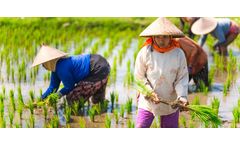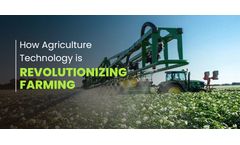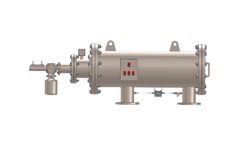Refine by
Crop Improvements Articles & Analysis
114 articles found
Researchers are increasingly interested in the fatty acid composition of crops and microalgae to improve yield, oil quality, and stress resistance. ...
Understanding plant hormones is crucial for improving agricultural practices, enhancing crop sustainability, and bolstering resistance against adverse environmental conditions. ...
Comparative studies of genome size across taxa illuminate patterns of genome evolution and adaptation. l Crop Improvement Knowledge of genome size is essential for breeding programs and genetic engineering in plants. ...
With advanced tools and diverse methodologies, Lifeasible is empowering agricultural researchers, plant breeders, and conservation biologists to gain deeper insights into genetic diversity, facilitating breakthroughs in crop improvement, biodiversity conservation, and trait analysis. The ability to detect genetic variation among plant germplasm is essential for ...
Water is undoubtedly one of the most important resources on the planet. However, we often forget its central role in an activity we all depend on: agriculture. Despite 70% of available freshwater being dedicated to this sector, climate change, growing demand, and poor management have jeopardized the availability of this resource, directly affecting global food security. Agriculture cannot exist ...
With the development of molecular biology and proteomics technology, it is expected that our understanding of the mechanism of plant SUMOylation will be further deepened, which is of significant importance for crop improvement and the formulation of environmental response strategies.Plant ...
In this meeting, they explored the potential of directed evolution, radical design of metabolic pathways, novel genetic circuitry and unique plant architectures to transform crop improvement[2]. It provides guidance for the application of synthetic biology in agriculture. ...
In this meeting, they explored the potential of directed evolution, radical design of metabolic pathways, novel genetic circuitry and unique plant architectures to transform crop improvement[2]. It provides guidance for the application of synthetic biology in agriculture. ...
The agricultural sector is at a critical stage. With the global population projected to reach nearly 10 billion by 2050, the demand for food is increasing rampantly. At the same time, there is mounting pressure to adopt sustainable farming practices to protect our planet’s limited resources. This delicate balance between increasing food production and minimizing environmental impact ...
In this meeting, they explored the potential of directed evolution, radical design of metabolic pathways, novel genetic circuitry and unique plant architectures to transform crop improvement[2]. It provides guidance for the application of synthetic biology in agriculture. ...
In the challenging and ever-evolving world of agriculture, where unpredictability reigns and efficiency is paramount, Dowd Hill Farms stands as a testament to the power of innovation and strategic partnerships. Nestled in the expansive landscapes of Dodsland, Saskatchewan, this family-run operation has embraced cutting-edge agricultural technologies to transform its farming practices. The case ...
This article explores the role of smart irrigation in enhancing agricultural sustainability by optimizing water use, improving crop yields, and reducing environmental impact. Understanding Smart Irrigation: Smart irrigation refers to the application of advanced technologies, sensors, and data analytics to optimize irrigation practices. ...
ByJXCT
These innovative compounds help in enhancing the growth and productivity of crops, thereby improving crop yields. Researchers have found that auxins can signal the plant to grow in certain directions or areas, thus controlling plant growth. ...
This article explores the benefits of intelligent irrigation systems for agriculture, including improved crop yields, reduced water usage, and increased sustainability. ...
ByJXCT
This precision approach to watering plants can lead to significant benefits in terms of water conservation, increased crop yield, soil protection, environmental sustainability, and time efficiency. ...
ByJXCT
Introduction:With the continuous development of science and technology, the agricultural field has gradually realized modernization and high efficiency. In order to better improve the yield and quality of crops, we need to carry out accurate and rapid detection of soil nutrient status. ...
ByJXCT
In this way, soil sensors not only improve irrigation efficiency, but also help reduce water consumption on farmland, protect water resources, and achieve sustainable agriculture.Second, optimize the crop growing environmentThe real-time data provided by soil sensors can help farmers understand the condition of the soil in a timely manner and take necessary ...
ByJXCT
Background: With the continuous development and application of science and technology, more and more fields begin to adopt automation technology to improve production efficiency and reduce costs. In the agricultural sector, automatic irrigation control systems have become a must-have device that can help farmers easily manage their fields, achieve efficient irrigation, and ...
ByJXCT
By optimizing irrigation practices with soil EC sensors, farmers can lower their operational expenses and improve their bottom line. Improved Crop Yield and Quality: Maintaining optimal soil moisture levels is essential for crop health and productivity. By using soil EC sensors to guide their irrigation decisions, farmers can ...
One of the critical components of successful agriculture is irrigation, which ensures that crops receive the water they need to thrive. However, using untreated or impure water for irrigation can have detrimental effects on crops and the environment. ...












